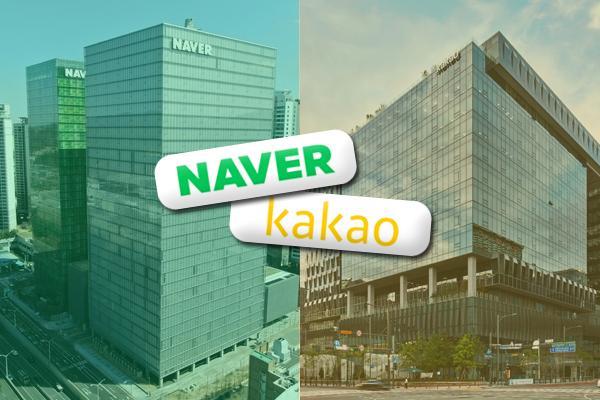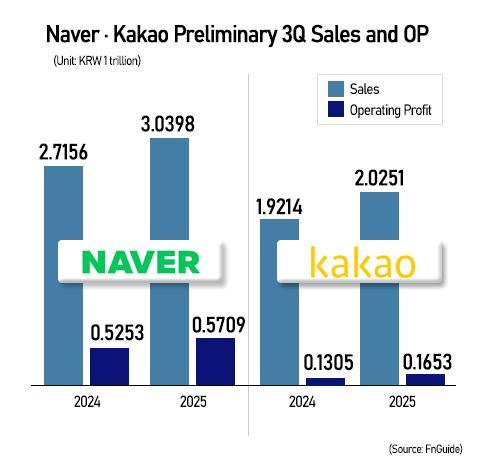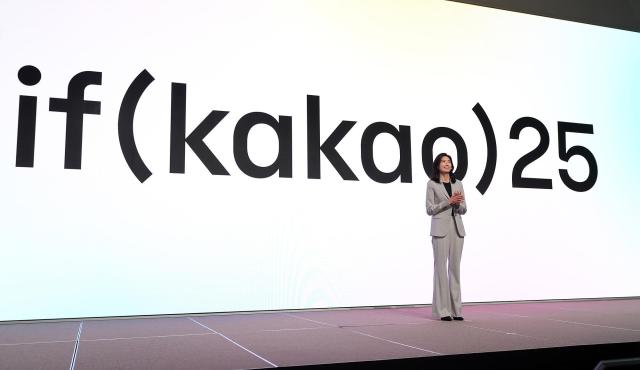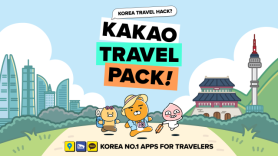
Naver is embedding AI across its search, commerce and fintech operations, while Kakao is weaving the technology into its messenger, content and advertising services to boost data-driven profitability.
The two are taking distinct approaches: Naver builds on homegrown technologies, while Kakao leverages partnerships with foreign AI developers to accelerate its catch-up.
"In terms of operational stance, Naver puts more weight on business-to-business operations, while Kakao focuses on individual user interaction and feedback, making it stronger in everyday AI use," said Lee Seung-man, professor of artificial intelligence at Seoul Cyber University. "It's hard to compare the two directly, but both are taking different directions in AI integration."
Naver's data management arm, Naver Cloud, recently partnered with SK hynix to secure next-generation memory chips aimed at improving AI service response times and reducing costs. The collaboration marks another step in linking software and hardware development across Korea's AI ecosystem.
For its flagship search service, Naver introduced AI Briefing, a generative search assistant similar to Google's AI features, and Smart Lens, an image-based exploration tool launched in July to strengthen visual search capabilities.

Its fintech arm, Naver Financial, plans to merge AI with blockchain through a partnership with Dunamu, proposing the issuance of stablecoins on Dunamu's Giwa Chain, which could link directly to Naver Pay. The company is expected to unveil a full roadmap of its AI integration across search, commerce, content and cloud services at its DAN25 conference next month.
Kakao, by contrast, has chosen a faster and safer route — integrating OpenAI's GPT-5 into its flagship messaging app KakaoTalk, marking the first direct collaboration of its kind worldwide. Beyond chatbot features, the latest overhaul introduces Instagram-style feeds, new chat-room folder functions, extended message editing up to 24 hours, and AI-powered voice call summaries.
In addition, Kakao is deploying its own lightweight on-device AI model, Kanana, with 1.3 billion parameters, reducing reliance on cloud infrastructure and enabling context-aware user experiences. Complementing its OpenAI partnership, Kakao plans to launch its own AI agent features by November.
Industry watchers believe Kakao's 49.1 million monthly active users position the firm to scale globally and strengthen its data competitiveness through ChatGPT integration.
"KakaoTalk is poised to grow meaningfully as the world's first messenger-based AI super app," said Choi Seung-ho of DS Investment & Securities.
As the search market rapidly shifts from portals to conversational interfaces, Kakao aims to build an AI learning ecosystem around KakaoTalk, evolving into a commerce and content hub powered by user data. Its ultimate goal is to connect AI agents with its in-house and partner platforms, gaining network and first-mover advantages.
If fully implemented, users could soon request music through AI agents and receive curated playlists from Melon, Kakao's music streaming unit, without leaving KakaoTalk.

Lee added that government support is likely, noting President Lee Jae Myung's repeated emphasis on sovereign AI, with Naver's HyperCLOVA X serving as Korea's representative model. "All IT technologies operate within government regulatory sandboxes, and both Naver and Kakao are adept at aligning with policy directions. Both are on strong growth trajectories," he said.
Naver and Kakao are scheduled to release their third-quarter results on November 5 and 7, respectively. Their shares are trading 7.29 percent and 4.57 percent higher over the past three months, reflecting investor confidence in their AI drive.
Copyright ⓒ Aju Press All rights reserved.




